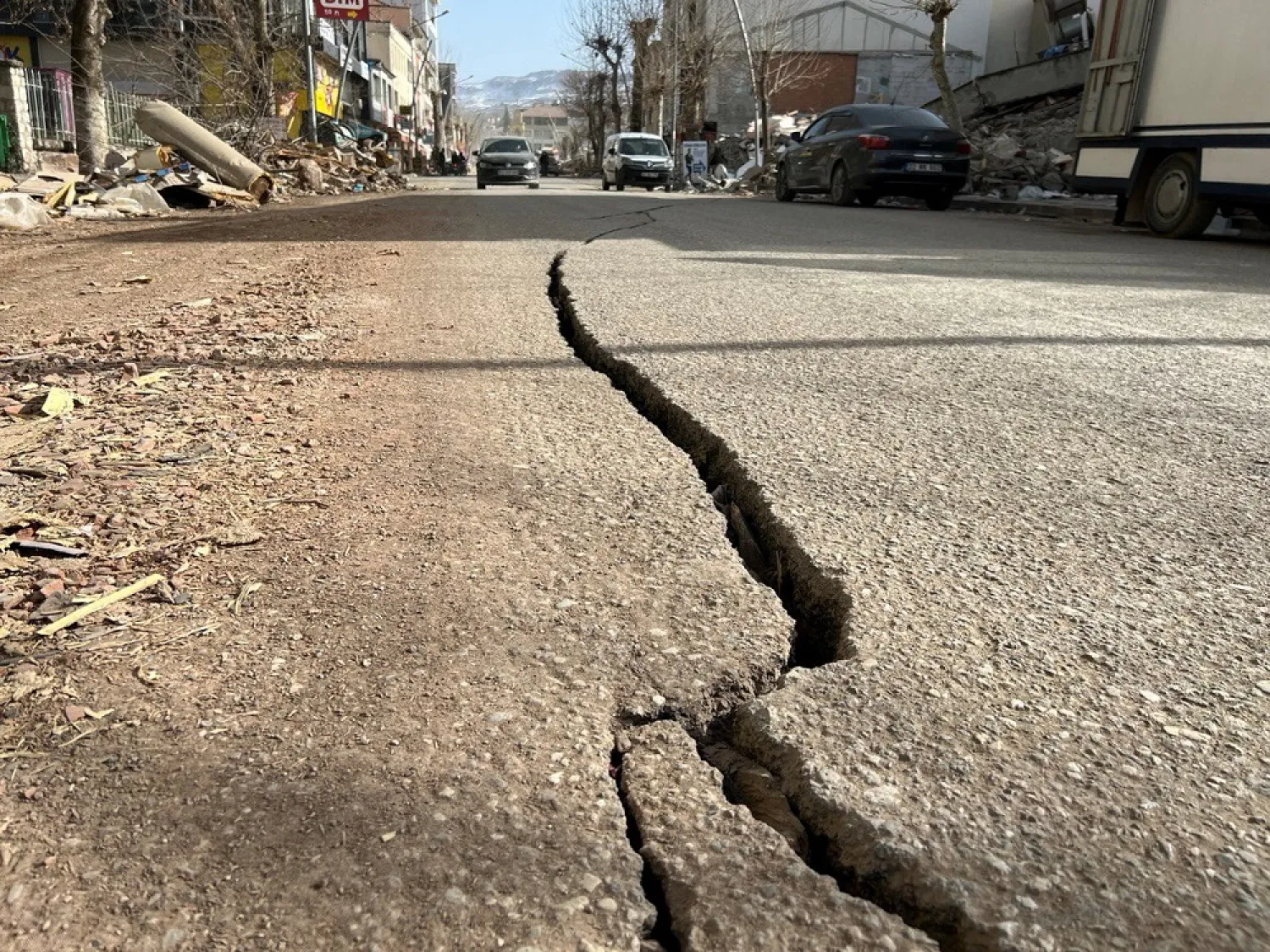Turkish President Recep Tayyip Erdogan could have relied on strong voter backing from Cigdemtepe and other villages and towns across southeast Türkiye in the past, but a huge earthquake and a slow rescue response has made once loyal support more uncertain.
There are signs his AK Party (AKP) is increasingly aware that it cannot take past votes for granted, as officials talk of accelerating rebuilding plans before elections in May, which may prove the toughest of Erdogan's more than two decades in power.
"This whole village has voted AKP even though no one knows why," said a truck driver in Cigdemtepe, which is perched above cotton and garlic fields in Kahramanmaras province, a region where whole urban centers were destroyed.
"The earthquake definitely changes our opinion because the first responders and tents were very late to arrive," he said.
How big a challenge Erdogan faces is difficult to determine, given the lack of polling in the region. In addition, the opposition has dithered before finally agreeing on a candidate to challenge Erdogan, unsettling voters, while experts say those affected by the quake could swiftly change their minds.
But Reuters interviews with nearly 30 residents in the past week in Kahramanmaras, Adiyaman and Gaziantep - provinces where white tents dot the landscape of buckling or collapsed buildings - suggest political loyalties, even among once diehard Erdogan backers, are shifting.
"My mind is completely changed," said a student in rural Kahramanmaras, who like others was reluctant to give their name. "We breathe AKP here but this earthquake changed everything for us. These people don't know what they are doing."
The deadliest disaster in Türkiye’s modern history devastated cities and towns and killed tens of thousands of people a month ago, mostly in a conservative stronghold that has heavily backed Erdogan and the AKP for two decades.
While only a tiny sample of the 14 million people affected by the earthquakes in southeastern Türkiye, the opinions of those interviewed shed light on how these mostly rural and working class voters could affect presidential and parliamentary polls.
Many resented years of permissive AKP construction policies that allowed up to eight-storey concrete apartments to be built - thousands of which were destroyed in the tremors.
Some were irked by what they saw as insensitive statements by political leaders including Erdogan, who asked for forgiveness last week for a response to the earthquake that could have been faster, while some others ridiculed the government's plan to rebuild the region in just a year.
But people also struggled to imagine voting for opposition parties and their newly-named candidate, Kemal Kilicdaroglu.
The AKP has ruled Türkiye with little serious electoral challenge since 2002, and party insiders told Reuters they are aware of the anger among their voter base in the southeast but confident a combination of swift rebuilding and a confused opposition will deliver victory.
One party official said they would "re-direct" residents' focus to efforts to rebuild and stress no one but Erdogan could do this quickly. Another said they would showcase reconstruction in an area where 227,000 buildings collapsed or face demolition.
Pollsters have mostly avoided surveying those in the disaster zone, while national surveys found the AKP has maintained its support. They point to a tight election contest despite a cost-of-living crisis that had gripped Turks long before the magnitude 7.8 quake and aftershocks brought more criticism of the government.
Unconvincing opposition
The centrist opposition bloc finally on Monday named former civil servant Kilicdaroglu, leader of the Republican People's Party (CHP) since 2010, as its candidate.
The region voted 65% or more for the AKP and its nationalist ally the MHP in the last election in 2018. Many residents told Reuters that opposition parties were late to name a candidate and that they would only support one with nationalist roots, such as Ankara mayor Mansur Yavas - who is slated to be one of Kilicdaroglu's vice presidents should he win.
One construction materials trader in Adiyaman, a city of 650,000 whose downtown is a wasteland of crumbled concrete, laughed at the idea of Kilicdaroglu as president.
Umur, a young accountant in the city, said he intended to cast his first-ever ballot for the opposition but only if the candidate was "a low-profile and effective person like Yavas".
'Not wise to hold elections'
Officials briefly floated the idea of delaying elections - before backtracking and pressing ahead with a date of May 14, a decision some find hard to comprehend.
"It is not wise to hold elections in May. People hurt, we still hurt," said Mahmut, an insurance worker in the town of Besni, where after the quake he said he could hear his cousins under the rubble for two days before their voices stopped.
Erdogan's request for forgiveness had been poorly received, he said, adding he normally votes for the MHP.
"There are many who want to vote for the opposition...and I could too, but I wouldn't vote for Kilicdaroglu because he has not won a single election," he said.
Mehmet, 52, a construction subcontractor living with his wife and child in a tent in Adiyaman, said "everyone" votes for Erdogan as president and he would too, but he would punish the AKP party by voting for the MHP.
Mehmet Ali Kulat, chairman of MAK polling company, said based on previous earthquakes survivors tend to blame the government at first, then later back whomever rebuilds homes.
There are only about 55 buildings in Igdeli, where villagers erected their own tents and intend to rebuild themselves.
"The government of the past 20 years is not working for the people," said 70-year-old farmer Mehmet. "I don't believe the opposition is up to the task either. But we need fundamental change."
















